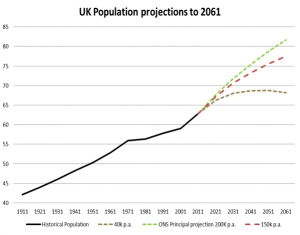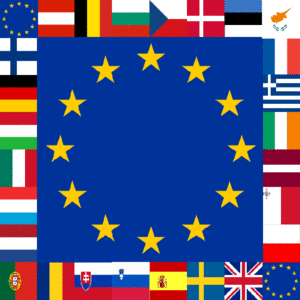I had not realised that it has been over a month since my last wittering. Musing on Drugs, Brexit Divorce Bills, and elections has led me to this. Many of you will be thankful for the silence especially my own son who’s has managed to embed himself into a political party and start campaigning in the UK’s latest election. I’ll get to that in a moment first lets talk NHS and drugs!
NHS
In the never ending debate about NHS spending in the UK – read across to other countries – let’s get a fact out from http://www.nhshistory.net/parlymoney.pdf
In 1950/51 spending amounted to £11.7 billion in 2010/11 prices, or 3.5% of
GDP. By 2010/11, spending had increased more than tenfold in real terms to reach £121bn, or 8.2% of GDP.
Although it has risen consistently over the period, spending has accelerated in recent years.
Between 1999/00 and 2009/10, real-terms expenditure rose by 92%
The Kings Fund has this for NHS in England in dismissing yet another politicians claim of how big an increase the NHS had received each year. The graph on the linked page shows increases, i.e. there has been a real terms increase in NHS spending in England since the 70s with 3 exceptions – so much for NHS cuts. The counter to that argument is that NHS costs have also increased ahead of regular inflation during this period and that is true in particular costs for new treatments i.e. drugs and they are treating more patients due to larger population size, but this is a pot % of a bigger pot as GDP has grown in the same period. There are within the numbers huge variations of what the money has been spent on – a new hospital, pay for cleaners, more doctors and nurses, radiographers, LGBT diagnosis, car parking executives, etc? But lets stick to Drugs.
Drugs
The drug market has recently been in the news with the perceived failure (in economic terms against improved life expectancy) of the UK’s National Cancer Fund. This was set up with the best intentions of funding nationally treatment that local health authorities could not afford. Thus transferring large amounts of money for very expensive drugs produced by pharmaceutical companies. Not surprisingly the results have not been as good collectively as everyone hoped. Some individuals have had very successful treatment, unfortunately most have not. This brings us to the bigger picture of drug companies, cures and such issues of the slow failure of antibiotics (due to over prescription and misuse).
Drug companies are not investing in research to replace antibiotics because there is no money in it for them. There is no money in any drug that produces a cure. What drug companies want is a population that is kept well enough to earn a living thus to pay for drugs that do not cure but keep the customer well. There is no cure for diabetes just a lifetime of insulin injections, blood tests and monitoring. Vaccines cure or prevent treatment is designed not to cure. The only answer to this problem is to either persuade leopards to change spots i.e. drug companies to work for the interests of the patient rather than shareholders or Government to be socially responsible. I have quoted before one terrorism incident provokes millions of tax money spent. Thousands of antibiotic deaths and risks of death provokes barely a whisper.
Brexit
Just a brief word on Brexit divorce bill for my European colleagues. Yes there will be a cost for commitments beyond Brexit date. the liabilities, but there is also a share of assets. Therefore, I presume the UK will be paid its percentage share of buildings, systems, IPR, stored wine, butter, grain, computer systems etc. Of course it appears that the rest of the EU want the UK to pay maintenance for the rest of the EU countries lives, like a distraught spouse who wants to stay in the family house and not work for a living.
UK Election
Both the elements above are key UK election issues. I know my pleads will land on deaf ears (or blind readers) but can we have proper facts. If a cut is claimed (See NHS) above please have the Oxford English Dictionary refine what the word cut actually means. I thought after Trump alternative facts might go on the back seat but no such luck. To add to NHS lets look at Education
http://data.worldbank.org/indicator/SE.XPD.TOTL.GD.ZS?locations=GB
The graph on that link shows a less than 1% reduction in Education spending as % of GDP between 2010 and 2015 since reversed and trending back upwards. This is in turn with a growing GDP i.e. higher % of higher total pot. Again internal inflation may reduce value of increase but it is not a cut. Spending per pupil – another measure may be down overall but that is because we have far more pupils than before due to net population increase, thanks to birth rates, lower death rates and better health care. Immigration may also have an impact but where more children come from is less important than the fact that there are more children living longer – I have covered this before. Normally we talk about age and long life pushing the population numbers up but higher birth rates and lower infant mortality do the same then 70+ years later add to the aging population. Just one example not in my local area and not a hotbed of immigration (unlike London), Somerset County Council had an increase in pupil numbers of 0.8% just between 2014 and 2015. This amounted to 521 pupils i.e. a decent sized primary school capacity needed. Have you noticed all the new schools being built, and the sewage systems, the roads the hospitals the…. You get my drift
I could also hope that people not actually standing in the election but in political parties might shut up for ten seconds so we can view the actual candidates – already a forlorn hope. Farage, Blair, Osbourne, Sturgeon I mean you. We then have the endless comments about voting for May, Crobyn, Farrow etc (other candidates are available) We do not have a presidency. For any one of these they first have to get elected by their area’s constituents. None of these people are standing where I live so I cannot vote for any of them. I can only vote for candidates standing in the area I am registered to vote. I continue to see commentators, media and the general public asked who they will vote for with the answer one of the leaders. All of these discussions are not in the the respective constituencies. Why is this question even asked?
Once elected as an MP, then ,if they manage to be the current leader of the largest political party (or other grouping), in the UK’s parliament, you may be asked by the monarch to form a government. If the numbers do not add up (326 MPS) you may still be asked if with other partners you can form a government as happened from 2010-2015. Sorry regional governments that’s why you still have national elections not regional ones Ms Sturgeon please take note, if you want a say on UK politics please stand as an MP and be accountable to your constituents to the UK Parliament otherwise please stick to running the bits of Scotland devolved to the Scottish Parliament. This specifically does not include foreign affairs, defence, security etc.
France
Of course by the time the UK goes to its national poll (we have local elections before that) France will have a new President. On current polls (can we believe any of them?) the likely winner on 7th May will be Emmanuel Macron and not Marine Le Pen. Here unlike UK they are voting for an individual. The whole EU leadership seems to be behind Macron as he is seen as pro-EU and business. Of course I am certain that no EU funds have been used to support any of the candidates apart from the funding all candidates in France receive from the EU – what you did not know that the EU funds political parties?
http://www.welcomeurope.com/european-funds/funding-of-political-parties-foundations-european-level-180+80.html#tab=onglet_details
It Almost Makes Sense
In the UK there are major restrictions on funding of political parties, hence potential prosecutions over expenses in the 2015 election, meanwhile the EU funds all sorts of groups and clearly the UK currently pays (via its net contributions) for this. Perhaps this is the real reason the EU wants funding to continue post Brexit. All those political parties and institutions are dependent on it just like a drug company wanting unwell patients that are never cured.
See other blogs for similar issues like Mathematics and IT





